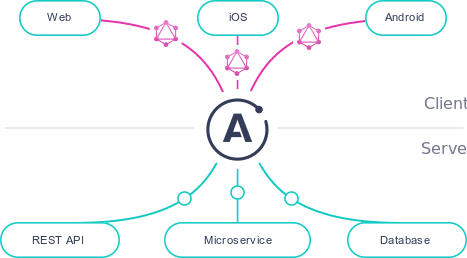Underlying technology
Django
The Django application framework has robust web service development capabilities, ease of language comprehension, and the ability to quickly prototype application ideas. We chose Django because:
- You can develop fast: Django is designed to help developers make an application as fast as possible. From idea to production to release, Django helps development be both cost effective and efficient.
- It is fully loaded: Django includes dozens of extras to help with user authentication, site maps, content administration, RSS feeds and much more. These extras help carry out the web development process completely.
- It is scalable: The Django framework can meet the heaviest traffic demand. Large organizations leveraging Django include Pinterest, Instagram, and BitBucket.
React.js
React.js is a Javascript framework that is great for developing Single-page applications (SPAs) that are amazingly fast and responsive.
Apollo
Apollo Server allows to quickly build a production-ready, self-documenting API for GraphQL clients, using data from any source. It's open-source and works great as a stand-alone server, an addon to an existing Node.js HTTP server, or in "serverless" environments.

Prisma
Prisma is an excellent tool for building GraphQL servers. The Prisma client is compatible with the Apollo ecosystem, has default support for GraphQL subscriptions and Relay-style pagination, provides end-to-end type safety and comes with a built-in dataloader to solve the N+1 problem.
GraphQL
GraphQL is an application layer query language. GraphQL is designed to interpret a string from a server or client and return data in an understandable, stable, and predictable format. As the official website for GraphQL puts it <https://graphql.org/>_, "Describe your data, ask for what you want, get predictable results."
Benefits of GraphQL
- Elegant data retrieval
- Back-end stability
- Query efficiency
- GraphQL is a specification
Who Uses It
- GitHub
- Yelp
- wayfair
- neo4j
- GRAPHCOOL